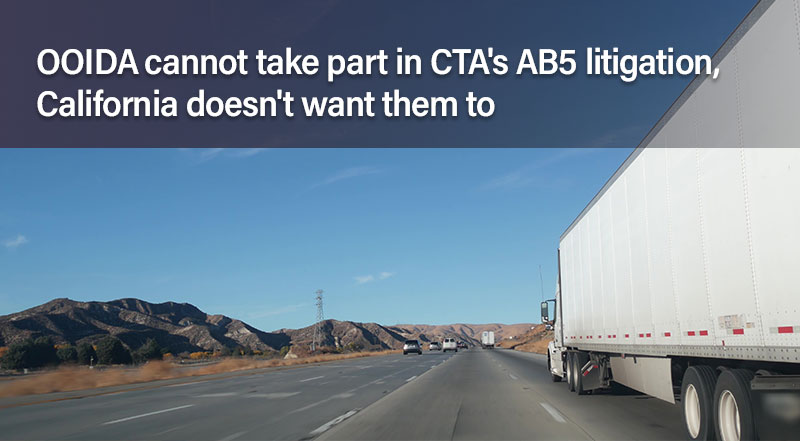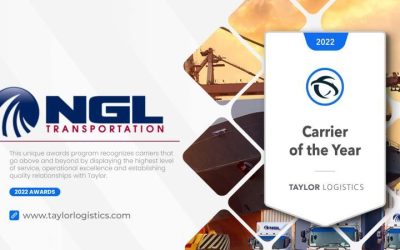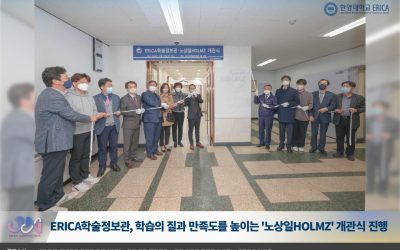California is objecting to the allowance of the OOIDA (Owner-Operator Independent Drivers Association) into the next round of the California Trucking Association’s lawsuit against California in accordance with the AB5 independent contractor law. The recent filing in the U.S District Court for the Southern District of California is the first action by any party since the lower court made it official that AB5 was no longer blocked by enforcement in the trucking sector. AB5 is projected to have a significant impact on the use of independent owner-operators by California trucking companies.
OOIDA is seeking to intervene in the case brought in 2018. The association first sought to intervene in April 2021, when it said that the CTA does “not adequately represent the distinct interstate commerce interstate of OOIDA and its members.”
The OOIDA filed last year that the CTA was focusing on an assumed conflict between the AB5 and the Federal Aviation Administration Authorization Act. The CTA’s issues against the F4A regulation prevailed at the district court level in a requested injunction against AB5.
When the injunction was passed down, the Dormant Commerce Clause was dismissed as the potential conflict with F4A was an adequate argument alone. The appellate court decision of April 2021 overturned the injunction through Supreme Court inaction. AB5 now applies to the trucking sector and the original lawsuit has gone back to the district court level.
With that action, the question of AB5’s potential conflict with the DCC (Dormant Commerce Clause, which involves state regulation of commerce) is now back in play. However, now the state thinks it’s too late to let OOIDA into the case and told the court it was too late back in 2021. Questions regarding OOIDA’s motion to be an intervenor (The intervener joins the suit by filing a motion to intervene.) have also come in place. Several standards must be met: One is timeliness. Another is having a “significantly protectable interest” and that the resolution of the case could “impair or impede” the potential intervenor’s ability to protect that interest.
The state is arguing that OOIDA’s filing in April 2021 was not timely. Another worry was the CTA’s “expansive interpretation of FAAAA preemption that OOIDA is concerned could stifle the ability of states to pass laws to address other truck driver concerns in the future.” OOIDA also noted that CTA’s arguments only had two pages about the Dormant Commerce Clause claim, which is a key OOIDA concern.
An important point of contention is the emphasis of the DCC because OOIDA is representative of a national organization. There is also the fact that each organization’s members are too different. CTA members consist of large companies that hire drivers. The OOIDA is made up of independent truck drivers.
“The contrast in interests between these two groups is significant,” OOIDA said. “While CTA’s members are concerned that AB5 will increase costs and force them to reorganize their business models, OOIDA members are concerned they will lose their business altogether. There is no party to the current litigation that seeks to represent the interests of interstate truck drivers based throughout the nation.”





